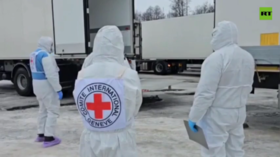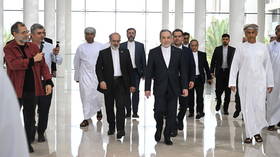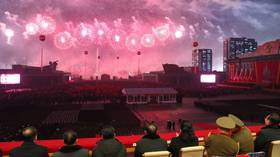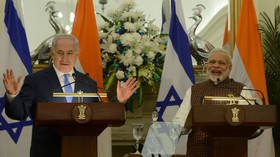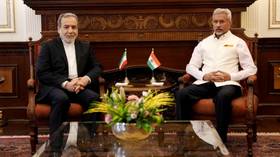US military intervention in Syria is not off the table
The US could move ahead with plans to intervene in Syria in spite of Damascus’s pledge to hand over its chemical weapons to international observers, Syria expert Manuel Ochsenreiter told RT.
RT:You listened to what both Foreign Minister Sergey Lavrov and US Secretary of State John Kerry had to say. What are your thoughts? Did their words inspire confidence in you?
MO: We witnessed maybe the most interesting times in terms of diplomacy since the end of the Cold War. For journalists covering the Syrian conflict it is like a diplomatic rollercoaster. I think we have heard so many contradicting messages, especially from the US government during the last two weeks and a half that somehow on the one side it is surprising that they reached an agreement with Russia and on the other side it is not so surprising anymore, because the US government has lost a lot of credibility not just internationally but among their own citizens, so they had to agree. If we look at today’s message from John Kerry, it’s clear that he has done a U-turn with regard to his position.
RT:Secretary Kerry went out of his way to stress the high level of cooperation between Russia and the US. Why did it take two years, though, to get here?
MO: If we look at the Syria war, and we use in media the term civil war, but it’s not a civil war, it’s a proxy war. We see that especially the US government is involved in this conflict. They are desperately trying to give reinforcement to the rebels. But we see after two and a half years of violence that there is a complete failure. The so-called armed opposition, including a large number of Jihadist extremists, haven’t managed to gain any ground in Syria. What we see now from the American side now is related to that failure of the last two and a half years. But we shouldn’t forget that this new agreement opens a new diplomatic scenario. If we listen to the words of john Kerry carefully, he was saying: “Inspect any and all sites in Syria.” So we see that there is now a scenario opening that the Americans might claim in the near future that the Syrian government is not cooperating. So I think the military option is not off the table.
RT:This deal, judging from what's been said so far, depends on both the regime’s and the rebels’ cooperation. So far the latter have refused to cooperate, but we can't forget the thousands of internationally recognized terrorists in Syria. Isn't it in their power to sink this idea entirely?
MO: While both foreign ministers were giving this press
conference, in Syria tens of thousands of terrorists – a large
number of them from abroad - are fighting and killing civilians
and committing horrible war crimes. So reaching a practical
agreement is really an important issue. We also should not forget
the meaning of the chemical weapons for Syria, for the Syrian
state and people. We talk about this chemical weapons stockpile
in terms of an offensive weapon. But for the Syrian government
the chemical weapons are like a protective armor which helps
protect the independence and sovereignty of Syria. I think this
is an aspect that should be considered in these discussions.
RT:Secretary Kerry admitted that rebel groups may have gained control of certain chemical weapons stores. What do you make of that admission, the timing of it?
MO: I think he had to admit it. The US position that only the Syrian government possesses chemical weapons and the Syrian government only uses these weapons in the conflict. However there is no evidence at all of this, although the US government claims this. There is no credibility in these claims. I think the congressmen of the US know this, the population knows this, and so it would be a bizarre point of view if John Kerry insisted that the rebels don’t have chemical weapons.
RT:Won't this admission in the future only complicate any US efforts to secure UN backing for military action without an investigation?
MO: We should listen very carefully to US politicians and
to what mainstream media is writing about this. We see the
position that the mere existence of a chemical weapons stockpile
might be reason enough to intervene, so I don’t think this will
change much when it comes to military intervention. We shouldn’t
forget that the West is prepared. The US has said already they
will not respect any UN decision. We should not forget this.
The statements, views and opinions expressed in this column are solely those of the author and do not necessarily represent those of RT.
The statements, views and opinions expressed in this column are solely those of the author and do not necessarily represent those of RT.


